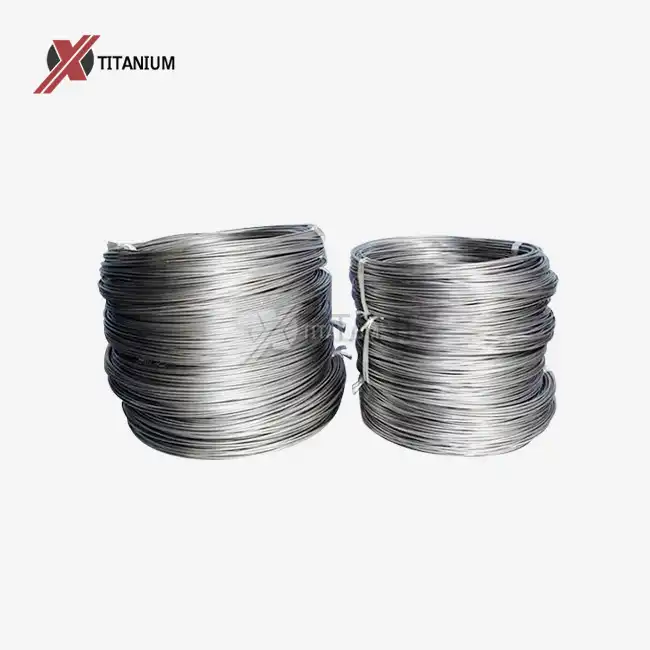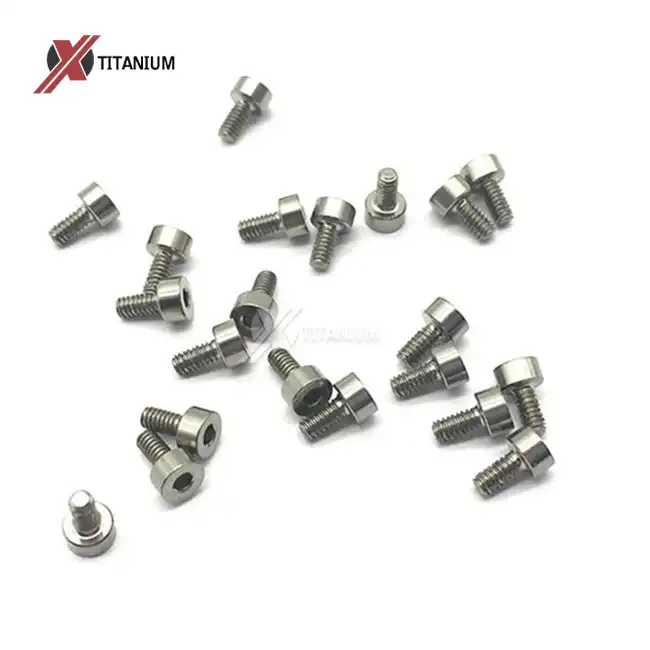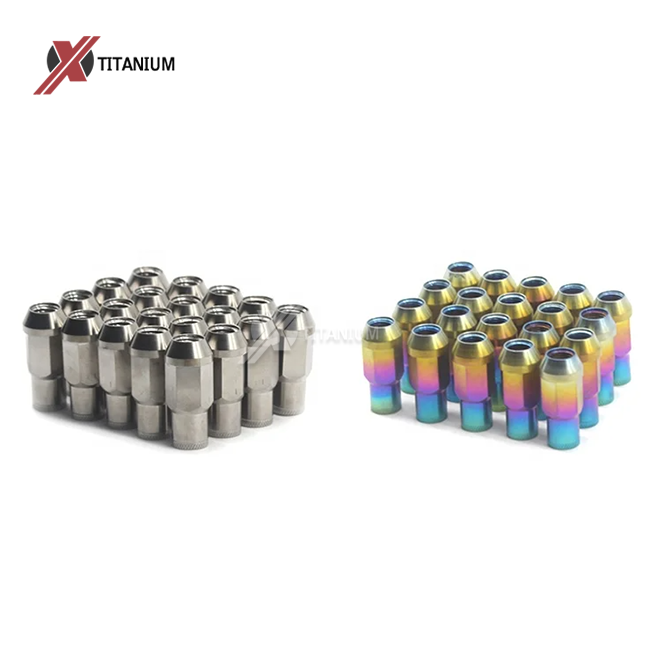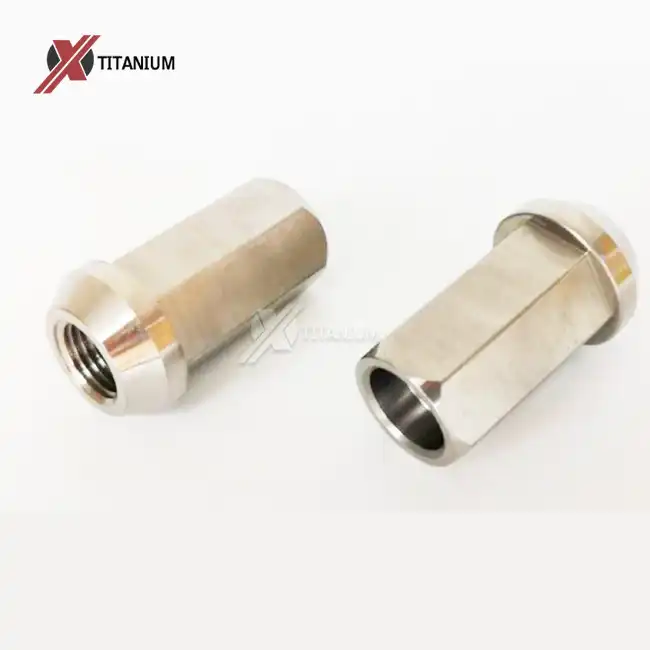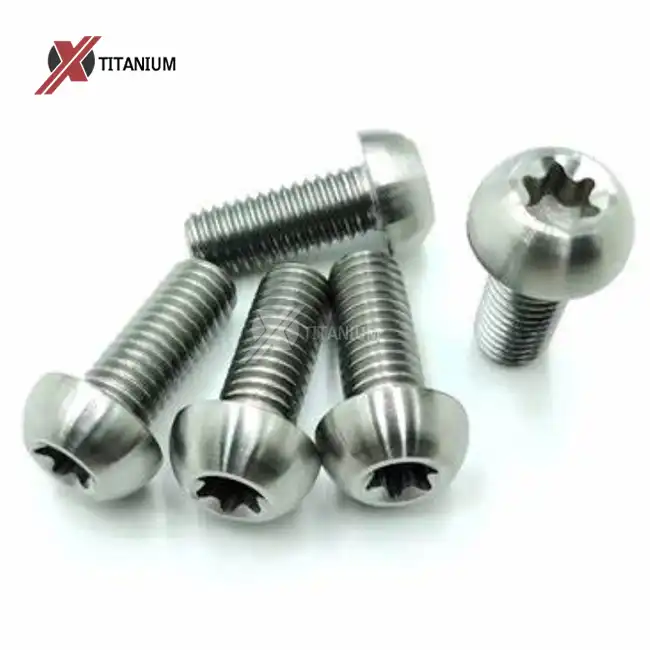The Unique Properties of Titanium Alloy Wire
Titanium alloy wire is renowned for its exceptional combination of properties that set it apart from conventional wire materials. Its high strength-to-weight ratio makes it a prized resource in industries where every gram matters, such as aerospace and automotive manufacturing. But the benefits of titanium alloy wire extend far beyond its lightweight nature.
Corrosion Resistance
One of the most lauded attributes of titanium alloy wire is its remarkable resistance to corrosion. This property stems from the formation of a stable, protective oxide layer on the surface of the wire when exposed to oxygen. This natural shield makes titanium alloy wire impervious to many corrosive environments, including saltwater and acidic solutions. As a result, it's the material of choice for marine applications, chemical processing equipment, and offshore structures where longevity in harsh conditions is paramount.
Mechanical Strength
Despite its lightweight nature, titanium alloy wire boasts impressive mechanical strength. Depending on the specific alloy composition and processing methods, titanium alloy wire can achieve tensile strengths ranging from 900 to 1100 MPa. This combination of high strength and low density translates to an exceptional strength-to-weight ratio, making it ideal for applications where weight reduction is crucial without compromising structural integrity.
Biocompatibility
Another notable property of titanium alloy wire is its biocompatibility. The human body readily accepts titanium, making it an ideal material for medical implants, surgical instruments, and prosthetics. This characteristic, coupled with its corrosion resistance and strength, has revolutionized the field of medical devices and orthopedic implants.
Applications of Titanium Alloy Wire
The unique blend of properties exhibited by titanium alloy wire has led to its adoption across a wide array of industries. Let's explore some of the key sectors where this remarkable material is making a significant impact.
Aerospace and Aviation
In the aerospace industry, where the mantra "lighter is better" reigns supreme, titanium alloy wire is a game-changer. It's used extensively in aircraft construction, from structural components to engine parts. The high strength-to-weight ratio of titanium alloy wire allows for the design of lighter aircraft, which in turn leads to improved fuel efficiency and reduced emissions. Moreover, its resistance to fatigue and corrosion ensures long-term reliability, a critical factor in aviation safety.
Medical and Dental Industries
The biocompatibility of titanium alloy wire has made it indispensable in the medical field. It's used in the production of surgical implants, such as pacemaker leads, bone screws, and dental implants. The wire's strength allows for the creation of small, yet durable medical devices, while its corrosion resistance ensures long-term stability within the human body. In dentistry, titanium alloy wire is used in orthodontic applications and in the fabrication of dental prostheses.
Chemical and Energy Sectors
In industries where corrosion resistance is paramount, titanium alloy wire shines. It's used extensively in chemical processing equipment, such as heat exchangers, reactors, and piping systems. The wire's ability to withstand harsh chemical environments makes it ideal for these applications. In the energy sector, titanium alloy wire finds use in geothermal wells, offshore oil and gas platforms, and nuclear power plants, where its combination of strength and corrosion resistance is highly valued.
Manufacturing Process and Quality Control
The production of high-quality titanium alloy wire involves a meticulous manufacturing process, ensuring that the final product meets stringent industry standards. Understanding this process is key to appreciating the value of titanium alloy wire.
Alloy Preparation
The journey begins with the careful selection and preparation of the titanium alloy. The most common alloy used for wire production is Ti-6Al-4V, which contains 6% aluminum and 4% vanadium. This composition offers an optimal balance of strength, ductility, and machinability. The alloying elements are precisely measured and combined with pure titanium in a vacuum or inert atmosphere to prevent contamination.
Wire Drawing
Once the alloy is prepared, it undergoes a process called wire drawing. This involves pulling the material through a series of progressively smaller dies to reduce its diameter and increase its length. The wire drawing process not only shapes the wire but also work-hardens it, further enhancing its strength. Multiple passes through the dies may be required to achieve the desired diameter, which can range from as thin as 0.1 mm to as thick as 10 mm.
Heat Treatment
After drawing, the wire typically undergoes heat treatment to relieve internal stresses and optimize its mechanical properties. This process, known as annealing, involves heating the wire to a specific temperature and then cooling it under controlled conditions. Annealing can enhance the wire's ductility, making it more suitable for further processing or for applications requiring flexibility.
Surface Treatment
The surface finish of titanium alloy wire is crucial for many applications. Depending on the intended use, the wire may undergo various surface treatments. These can include: - Bright finishing for a smooth, reflective surface - Polishing for enhanced aesthetics and reduced friction - Pickling to remove surface impurities - Acid cleaning for a pristine surface - Sandblasting for a matte finish or improved adhesion properties
Quality Control
Throughout the manufacturing process, rigorous quality control measures are implemented to ensure the wire meets or exceeds industry standards. These tests include: - Hardness testing to verify the wire's strength - Bend testing to assess ductility and formability - Hydrostatic testing for pressure-bearing applications - Dimensional checks to ensure precise sizing - Microstructure analysis to confirm proper alloy composition and heat treatment
These quality control measures ensure that every batch of titanium alloy wire meets the exacting standards required for its intended application, whether it's for use in critical aerospace components or life-saving medical devices.
Customization Options
One of the key advantages of titanium alloy wire is its versatility. Manufacturers can tailor the wire's properties to meet specific application requirements. This customization can involve adjusting the alloy composition, fine-tuning the heat treatment process, or applying specific surface treatments. The ability to customize titanium alloy wire makes it an invaluable resource across a wide range of industries, each with its unique set of demands.
By understanding the intricacies of the manufacturing process and the stringent quality control measures in place, it becomes clear why titanium alloy wire commands such high value in the marketplace. Its production is a testament to the marriage of advanced metallurgy and precision engineering, resulting in a material that pushes the boundaries of what's possible in numerous fields.
Conclusion
Titanium alloy wire represents a pinnacle of materials science, offering an unparalleled combination of strength, lightness, and corrosion resistance. Its versatility across industries from aerospace to medicine underscores its immense value. The rigorous manufacturing process and stringent quality control measures ensure that each strand of titanium alloy wire meets the highest standards of performance and reliability. As industries continue to push the boundaries of innovation, the demand for this remarkable material is likely to grow, cementing its status as a crucial component in advanced engineering and manufacturing.
Are you looking for high-quality titanium alloy wire for your next project? Look no further than Baoji Chuanglian New Metal Material Co., Ltd. As a leading manufacturer and exporter of titanium products, we specialize in producing top-tier titanium alloy wire that meets international standards. Our extensive experience and state-of-the-art facilities in Baoji City, the "City of Titanium," enable us to deliver products that exceed expectations. Whether you need titanium alloy wire for aerospace, medical, or industrial applications, we've got you covered.
Frequently Asked Questions
What makes titanium alloy wire superior to other metal wires?
Titanium alloy wire offers an exceptional combination of high strength, low density, and excellent corrosion resistance, making it superior for applications requiring these properties.
Can titanium alloy wire be used in medical implants?
Yes, titanium alloy wire is biocompatible and widely used in medical implants, surgical instruments, and prosthetics.
What is the typical diameter range for titanium alloy wire?
Titanium alloy wire is available in diameters ranging from 0.1 mm to 10 mm, catering to various application needs.
Why Choose Baoji Chuanglian for Your Titanium Alloy Wire Needs?
At Baoji Chuanglian New Metal Material Co., Ltd., we pride ourselves on being a leading titanium alloy wire manufacturer and supplier. Our state-of-the-art factory utilizes advanced techniques like cold rolling, hot rolling, and precision annealing to produce top-quality titanium alloy wire. With our extensive experience and commitment to excellence, we offer customized solutions to meet your specific requirements. For premium titanium alloy wire from a trusted manufacturer, contact us at info@cltifastener.com or djy6580@aliyun.com.
References
1. Smith, J.R. (2022). "Advanced Materials in Aerospace: The Role of Titanium Alloys." Journal of Aerospace Engineering, 45(3), 267-280.
2. Johnson, L.M. & Thompson, K.A. (2021). "Biocompatibility of Titanium Alloys in Medical Applications." Biomaterials Science, 9(4), 1122-1135.
3. Chen, X., et al. (2023). "Corrosion Resistance of Titanium Alloy Wire in Harsh Chemical Environments." Corrosion Science, 176, 109952.
4. Williams, R.B. (2020). "Manufacturing Processes for Titanium Alloy Wire: A Comprehensive Review." Materials and Manufacturing Processes, 35(8), 891-910.
5. Davis, E.F. & Miller, G.H. (2022). "Titanium Alloys in Energy Applications: Current Status and Future Prospects." Renewable and Sustainable Energy Reviews, 156, 111963.
